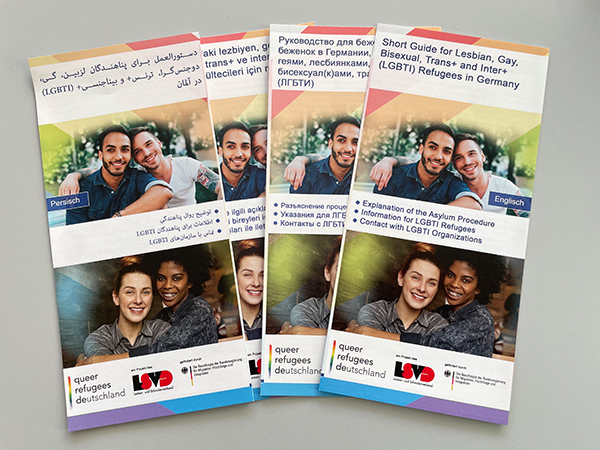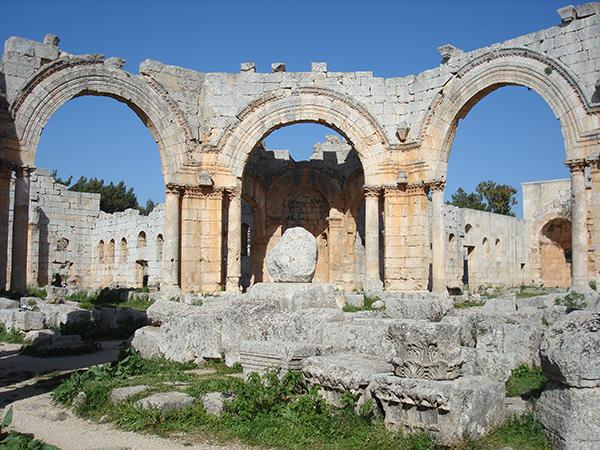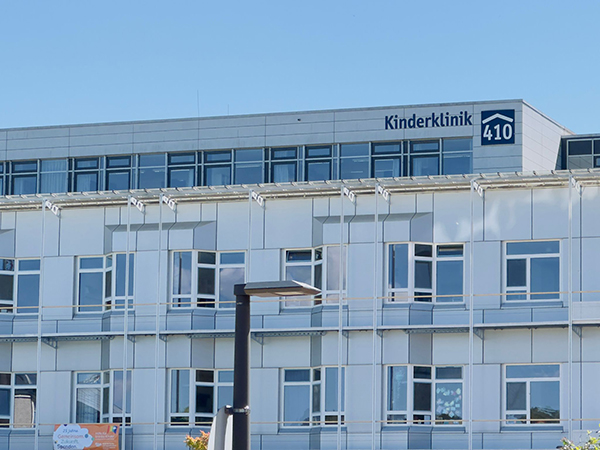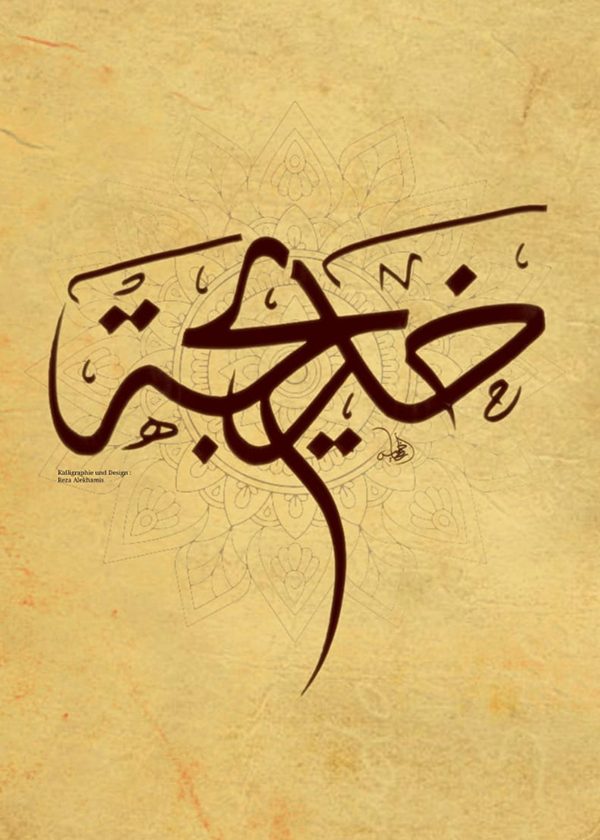By Ute Kaiser
The very first time they meet, they make a statement: The rainbow flag is stuck to the cover of the service mobile phone. It symbolises a “protected space”, says Steffen Müller-Mychajliw from the specialist service for refugees at the Tübingen district office. The refugee sitting opposite him or other employees of the specialist service can rest assured: “The counselling is anonymous, open and characterised by trust and acceptance,” says Müller-Mychajliw in an interview with tünews INTERNATIONAL. He is the head of the Tübingen regional team and the contact person for all colleagues from the specialised service on the topic of queer refugees.
The rainbow flag has been a symbol of the gay and lesbian movement since 1978. However, the flag now also symbolises people who are bisexual, transsexual, transgender, intersex and queer (LGBTTIQ). The team from the district office currently looks after nine LGBTTIQ refugees. The 44 employees in the specialised service are multi-professional. They have training in areas such as social work, social education and Islamic theology. And the team is multicultural. Employees speak Arabic, Turkish and Georgian, among other languages.
The first LGBTTIQ refugees arrived in the district of Tübingen in January of this year. They had previously lived in Afghanistan, Nigeria, North Macedonia, the Russian Federation, Senegal and Sudan. In countries such as Iran or Nigeria, but also in Afghanistan, people who live outside of heteronormativity (a worldview according to which there are only two genders) can be punished with death. The judiciary in Russia has just classified the LGBTTIQ movement as an “extremist organisation” and banned its activities. In 2022, the German Ministry of the Interior instructed the Federal Office for Migration and Refugees (BAMF) to better protect queer refugees.
Not all queer people come out during the initial interview with the experts from the district office’s specialised service. At this appointment, “all questions are discussed calmly”, says Tinatin Khidesheli from the specialised service. Interpreters from Caritas translate. It can take months for those affected to explain in more detail what they experienced in their home country: Discrimination, violence and threats, even death. In the interviews, however, they are “not explicitly asked about the reasons for their flight”, says Müller-Mychajliw, who says that they are “extremely stressed and traumatised”. They have anxiety disorders or panic attacks, for example.
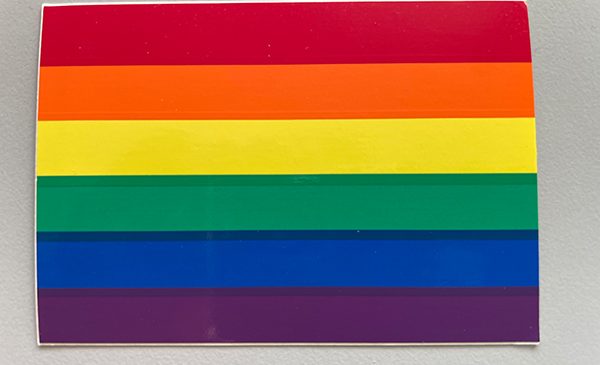
All refugees receive the same integration management and social counselling. However, the staff at the specialised service are specially trained in LGBTTIQ issues. And they are “sensitised to the needs of those who are particularly vulnerable,” says Müller-Mychajliw, which means that their special situation must be taken into account when advising these clients and accommodating them in the district. For example, there is a flat in which several affected people live together as in a shared flat. If there is no suitable accommodation, the district cannot take in any more LGBTTIQ refugees.
The employees of the specialised service experience very stressful situations in the conversations. They are not left alone with this. There are team meetings in which they can discuss complicated and dramatic cases. They also have supervision sessions with experts from outside the district office. One of the topics discussed is closeness and distance. One of the questions is: “How do I set a good boundary?” says Khidesheli.
Despite all the expertise, counselling also has its limits. “We have to recognise that someone has mental health problems, but we don’t have to treat them,” says Müller-Mychajliw. If they have special needs, the staff at the specialist service refer those affected to specialist doctors, advice centres such as the Transcafé, the Adis association, the AIDS service organisation and the Queer Centre in Tübingen, as well as to the Psychiatric Outpatient Clinic (PIA) at Tübingen University Hospital or its Department of Psychosomatic Medicine and Psychotherapy. They also establish contact with volunteers who support these refugees in their everyday lives.
When they first meet LGBTTIQ refugees, some caretakers of accommodation centres or employees in town halls are unsettled. For example, they wonder how they should address a trans woman who is a man according to her passport. In this case too, the employees of the specialised service can help with their expertise.
Information for LGBTTIQ refugees is available in several languages at www.queer-refugees.de—a project of the Lesbian and Gay Association, which is funded by the Federal Government Commissioner for Migration, Refugees and Integration.
tun23120506
Der Fachdienst für Geflüchtete im Tübinger Landratsamt kann Informationen auch dank Flyern in mehreren Sprachen weitergeben. In ihnen klärt das Projekt „Queer Refugees Deutschland“ queere Geflüchtete unter anderem über das Asylverfahren auf. Foto: tuenews INTERNATIONAL / Ute Kaiser.
002244
002245

